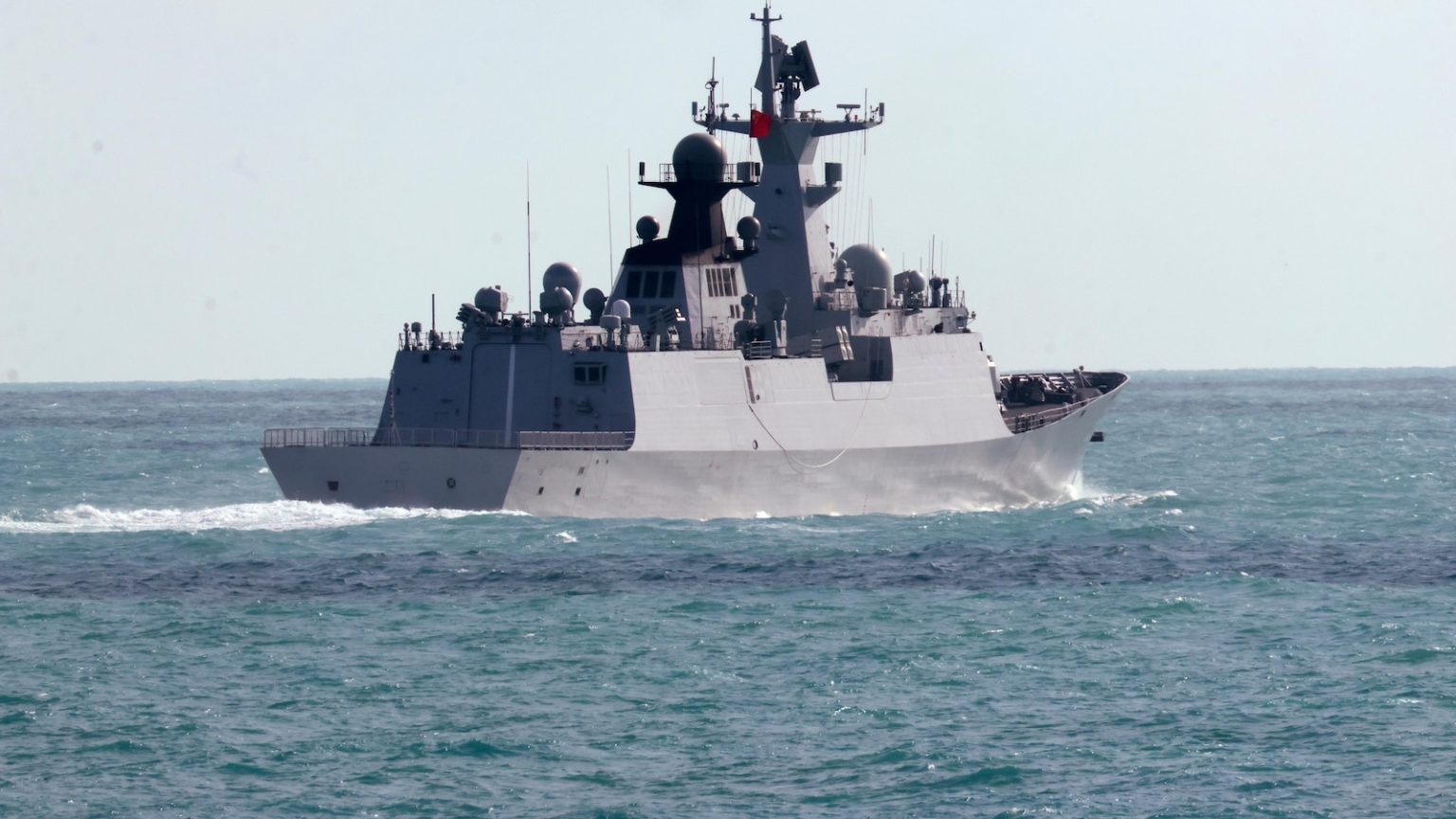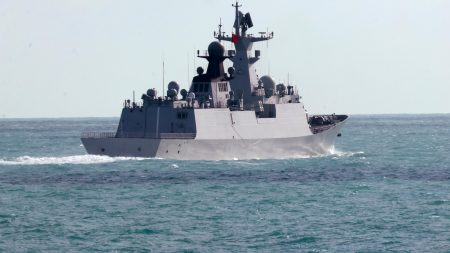Australia Warns Airlines of Chinese Warship Exercises in Tasman Sea
In a recent development, Australia has issued a warning to international airlines operating between Australian airports and New Zealand. The alert is due to live-fire exercises being conducted by Chinese warships in the Tasman Sea. According to Foreign Minister Penny Wong, the exercises pose a potential hazard to flights in the region. The warning was issued by Airservices Australia, the country’s aviation regulator, to ensure the safety of commercial pilots and passengers.
Wong confirmed the details in a report by the Australian Broadcasting Corp. (ABC), stating that the exercises involve three Chinese warships off the east coast of Australia. The area affected is the airspace between Australia and New Zealand, which is a busy route for both domestic and international flights. As a result of the warning, several international flights have already diverted their routes to avoid the area. This precautionary measure highlights the importance of maintaining safety in international airspace, even when military exercises are being conducted.
Wong emphasized that this is a normal practice when military vessels are engaged in exercises. She explained that it is standard for authorities to provide such advisories to all aircraft and ships in the vicinity. “It would be normal practice where a task group is engaging in exercises for there to be advice given to vessels and aircraft in the area," she said. Wong also mentioned that Airservices Australia is fulfilling its responsibility by issuing the necessary warnings to ensure the safety of all parties involved.
Ongoing Discussions Between Australia and China
In addition to issuing the warning, the Australian government has been in discussions with China regarding the notification and transparency of its naval exercises, particularly those involving live-fire drills. Wong stressed the importance of clear communication to avoid any potential risks or misunderstandings. These discussions reflect Australia’s commitment to maintaining a safe and cooperative maritime environment, especially in the Tasman Sea, which is a shared resource for both countries.
The exercises have also caught the attention of the Australian military, which has been monitoring the Chinese warships for several days. The Chinese vessels are operating in international waters off the Australian east coast, which is within their legal rights. However, the Australian Defense Force is keeping a close watch to ensure that the exercises do not disrupt regional stability or pose any unintended threats to neighboring countries.
A Delicate Balance of Maritime Security
The situation underscores the delicate balance of maritime security in the Indo-Pacific region. While China’s military exercises are a legitimate activity in international waters, they also raise concerns about transparency and the potential impact on commercial aviation and shipping. Australia’s response demonstrates its commitment to maintaining a rules-based order in the region while respecting the rights of other nations to conduct routine military activities.
The live-fire exercises by the Chinese warships are a reminder of the growing military presence in the region and the need for all stakeholders to communicate effectively to prevent incidents. The Australian government’s proactive approach to the situation highlights its role as a responsible regional player, ensuring that safety and security are prioritized while respecting the principles of international law.
Conclusion: A Focus on Safety and Cooperation
In summary, Australia’s warning to international airlines is a prudent measure to ensure the safety of commercial flights in the region. The presence of Chinese warships conducting live-fire exercises in the Tasman Sea has necessitated this precaution, and the diversions of several international flights reflect the seriousness with which the warning has been taken. The ongoing discussions between Australia and China about the notification and transparency of such military activities are crucial for maintaining trust and cooperation in the region. Australia’s comprehensive approach to monitoring and managing the situation demonstrates its commitment to safeguarding maritime and aviation security while respecting the rights of all nations to operate in international waters. This incident serves as a reminder of the importance of clear communication and cooperation in maintaining stability in the Indo-Pacific region.















